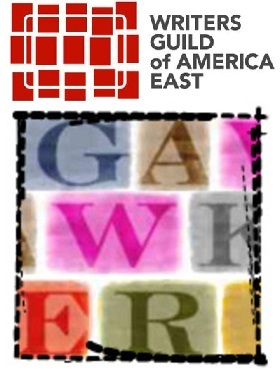
The digital workplace can be organized. The editorial staff at Gawker Media has voted overwhelmingly to join with the Writers Guild of America, East, AFL-CIO, to bargain collectively with their employer. We will begin contract negotiations shortly.  Unionization of people who work in digital media is deeply significant, but not as surprising as one might think. People who create digital content work hard and add value to their employers' enterprises, and they deserve to be fairly compensated. Digital media employees want protections against bad management decisions, and they want a say in how their work lives unfold. A job in digital media is not someone's pastime, it is where people want to build sustainable careers. Collective bargaining is an effective way -- perhaps the most effective way -- to address these concerns. It brings the power of the entire workforce to the bargaining table, creating a process for tackling problems using complete information and (usually) rational discussion.
Unionization of people who work in digital media is deeply significant, but not as surprising as one might think. People who create digital content work hard and add value to their employers' enterprises, and they deserve to be fairly compensated. Digital media employees want protections against bad management decisions, and they want a say in how their work lives unfold. A job in digital media is not someone's pastime, it is where people want to build sustainable careers. Collective bargaining is an effective way -- perhaps the most effective way -- to address these concerns. It brings the power of the entire workforce to the bargaining table, creating a process for tackling problems using complete information and (usually) rational discussion.
Perhaps it is true that archaic stereotypes of unions -- you know, rigid institutions bent on imposing clunky rules to hamstring the world's job-creators -- would not seem to have any appeal for workers who deploy wit, are tech-savvy and rely on creativity and nimbleness rather than brawn and routine. But the commonplace notion of retrograde unions ignores the reality of the modern labor movement, which has thought long and hard about how to adapt to the contingent, flexible economy of the 21st Century, and to the real needs of the modern workforce. Thankfully, Gawker's founder, Nick Denton, and the company's senior management have rejected the old stereotypes and have recognized that unionization (a) is a decision properly left to the employees themselves and (b) is a great way to give employees a real voice on the job, which in the long run benefits the enterprise as much as it benefits the workers. An engaged workforce whose concerns are addressed in a serious manner is a productive workforce.
Of course we all recognize that digital technology is transforming the way people work, and the way information is communicated, the way stories are crafted, distributed, and consumed. The WGAE's members have fought hard for the rights of digital creators. People remember the national WGA strike in 2007-2008 as a successful battle for the right of knowledge workers to have a say as technology transforms the way we all work; Guild members won the right to get paid for digital use of their work, and won jurisdiction over made-for-digital content. We mobilized and agitated for net neutrality -- for an open Internet accessible to all digital content creators.
Beginning about six years ago the WGAE embarked on a project to examine the opportunities and challenges presented by digital technology. We have built connections with people who are creating content in the digital space, and we are working to ensure that writers have a seat at the table as new business and creative models are created. Gawker has demonstrated that a new model, based entirely in the digital world and not descended from print or broadcast, is feasible and sustainable.
As Gawker's writers have demonstrated, organizing in digital media is a real option, not an abstraction or a fantasy. People who do this work really can come together for their own common good.
The WGAE is dedicated to the proposition that creative professionals benefit from collective bargaining, and with their vote the writers at Gawker have said they agree. The WGAE's members include people who write for digital media, for television (both scripted and nonfiction/"reality"), for radio, and for the big screen. They write news, comedy, drama, documentaries, and public affairs programs. Like the writers at Gawker, they are dedicated to their work and share a passion for crafting compelling stories, whether for information or entertainment (or both), whether serious or satirical (or both). The WGAE, Gawker's writers, and the company's management share a commitment to journalistic integrity and creative freedom. We are eager for Gawker's editorial staff to join our creative community, and we are eager to negotiate a fair contract.